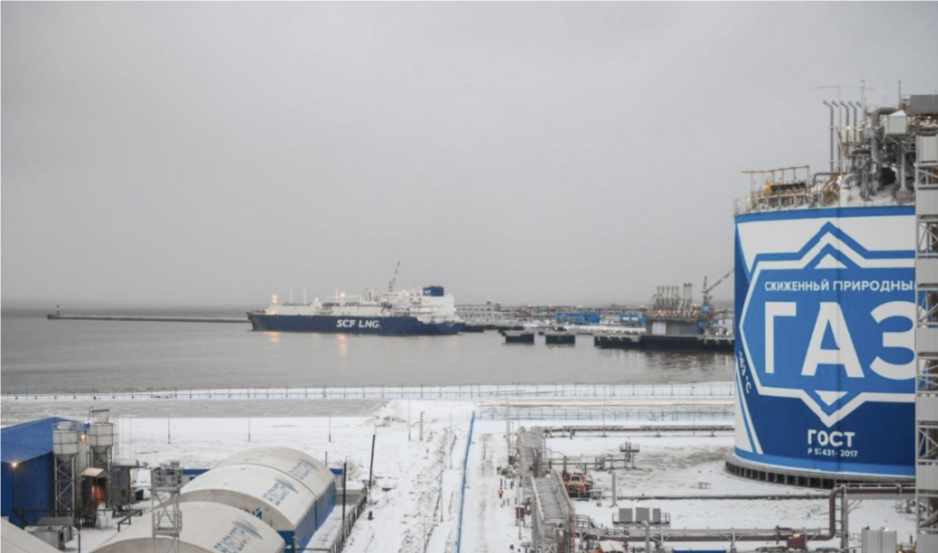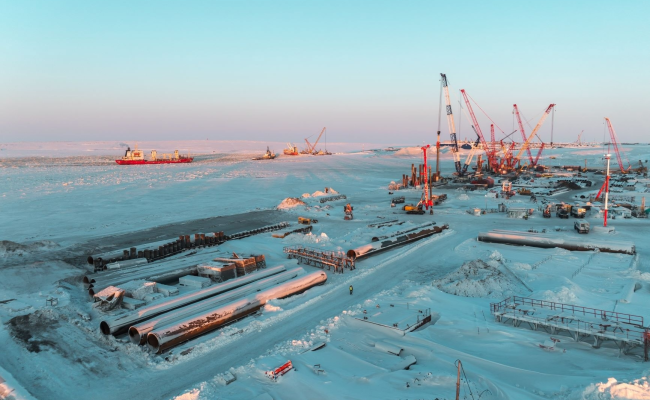U.S. Targets Future Russian Energy Projects in Arctic in New Round of Sanctions

Novatek’s Yamal LNG project in the Arctic. (Source: Novatek)
The next round of U.S. sanctions against Russia targets the proposed Obsky LNG, Arctic LNG 1 and Arctic LNG 3 projects and companies building pipeline infrastructure for Murmansk LNG and Vostok Oil.
The U.S. continues its systematic effort to degrade Russia’s future energy revenues. The latest round of sanctions announced Wednesday builds on previous measures successfully stalling the Arctic LNG 2 project and degrading related infrastructure.
The U.S. Department of the Treasury now added future liquefied natural gas (LNG) projects – Obsky LNG, Arctic LNG 1 and Arctic LNG 3 – to the list of sanctioned entities.
“Today Treasury is targeting entities involved in three liquefied natural gas (LNG) projects that Russia hopes to bring online in the future,” the announcement reads. U.S. officials had previously stated their intent to “kill the Arctic LNG 2 project” and teased additional measures against Russia’s Arctic energy projects would follow.
Ice-capable vessels
Novatek had long intended to expand its operations on the Yamal and Gydan peninsulas with these three projects following the completion of original Yamal LNG and subsequent Arctic LNG 2 projects. Yamal LNG so far remains unsanctioned by the U.S. or Europe.
But following the impact of Western sanctions on its logistics chain – especially the availability of ice-class LNG tankers – Novatek recently shifted its attention toward constructing Murmansk LNG. That project will be located in the year-round ice-free waters of the Barents Sea thus eliminating the need for ice-capable vessels.
Novatek’s ability to successfully implement this project, however, may now also be constrained as the entity LLC Murmansk LNG, established to develop the project, has as well been sanctioned.
Today’s actions strike at their remaining avenues for international materials and equipment
U.S. also blocks pipeline construction
Blocking measures also target entities involved in the construction of these natural gas projects and the manufacturing of specialized equipment.
Especially noteworthy is the targeting of Russia-based company Baltmash which produces polyurethane foam used for the insulation of storage tanks on LNG vessels. The foam could serve as “a potential replacement for G7-origin technology that Russia can no longer access,” the Treasury Department stated.
In addition, a manufacturer of cryogenic isothermal panels used in the storage of LNG, Regent Baltica, has also been added to the list of sanctioned entities
The targeting of replacement technologies or materials is one of the focal points of these latest sanctions, explained Secretary of the Treasury Janet L. Yellen.
“Today’s actions strike at their remaining avenues for international materials and equipment, including their reliance on critical supplies from third countries.”
In addition to targeting projects and suppliers directly, the latest efforts by the U.S. also target companies responsible for the construction of critical pipelines to supply gas or crude oil to Russia’s energy projects.
Rosneft’s massive Vostok Oil Project, slated to come online this year, relies on a complex network of pipelines to carry product to the loading facilities. Sanctions now target Yamaldorstroy, a Russian company constructing a key section of the pipeline for the Vostok facility.
Similarly, Murmansk Transgaz LLC, the company responsible for constructing the gas pipeline connecting Murmansk LNG to gas fields 1,300 km away in the Volkhovsky District in western Russia is also part of the latest sanctions.



